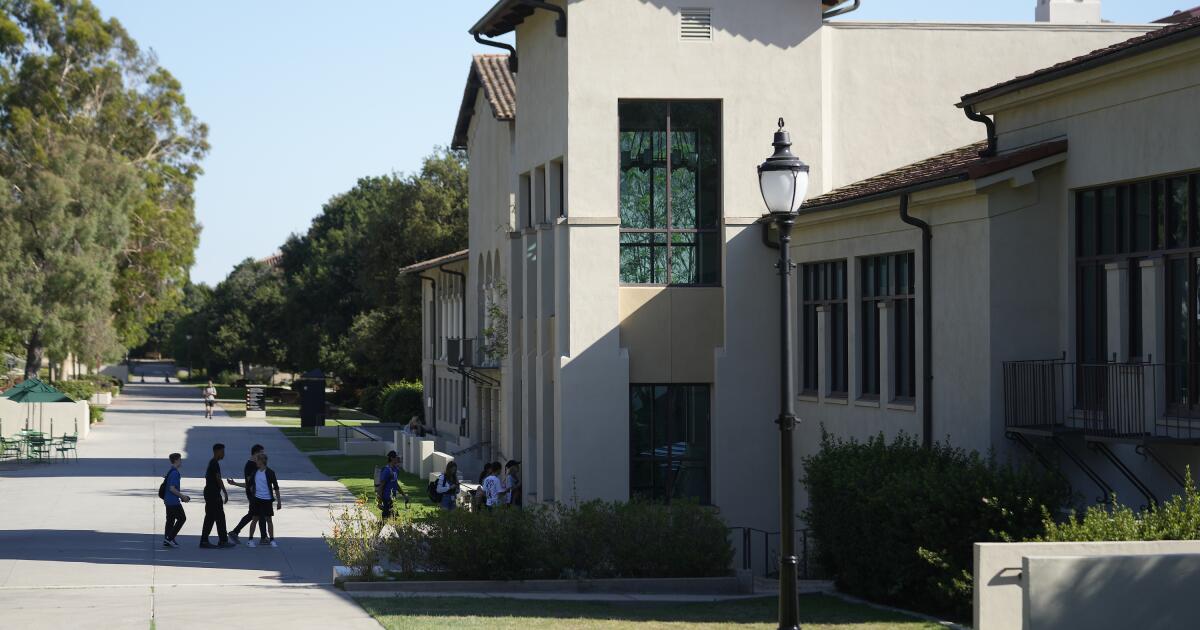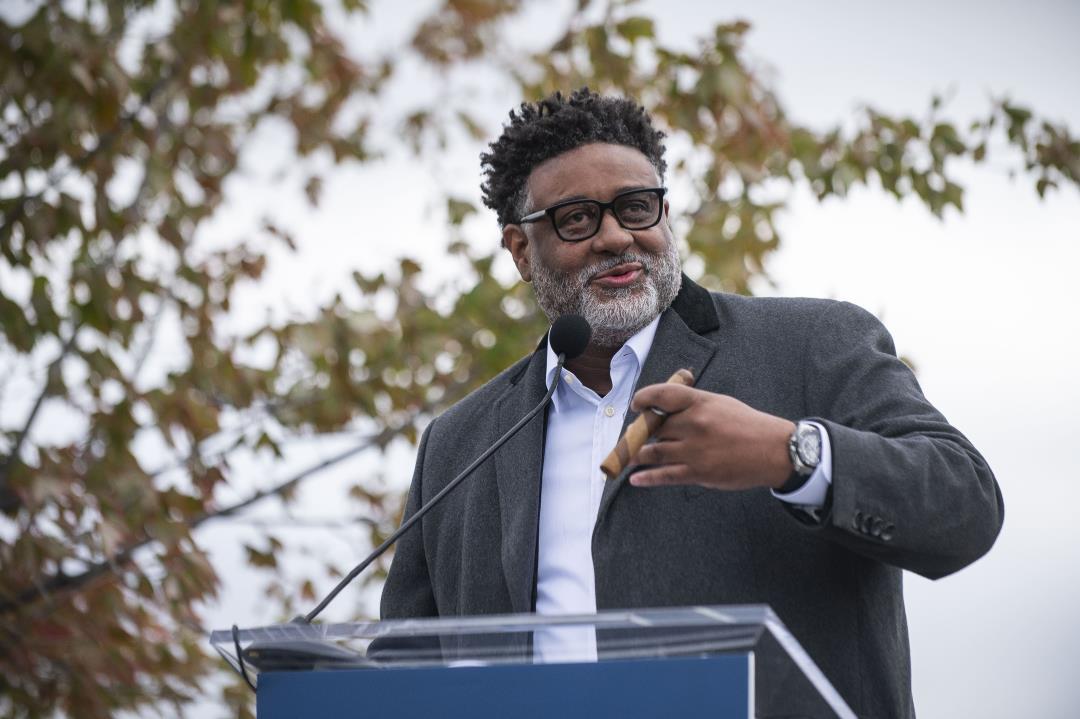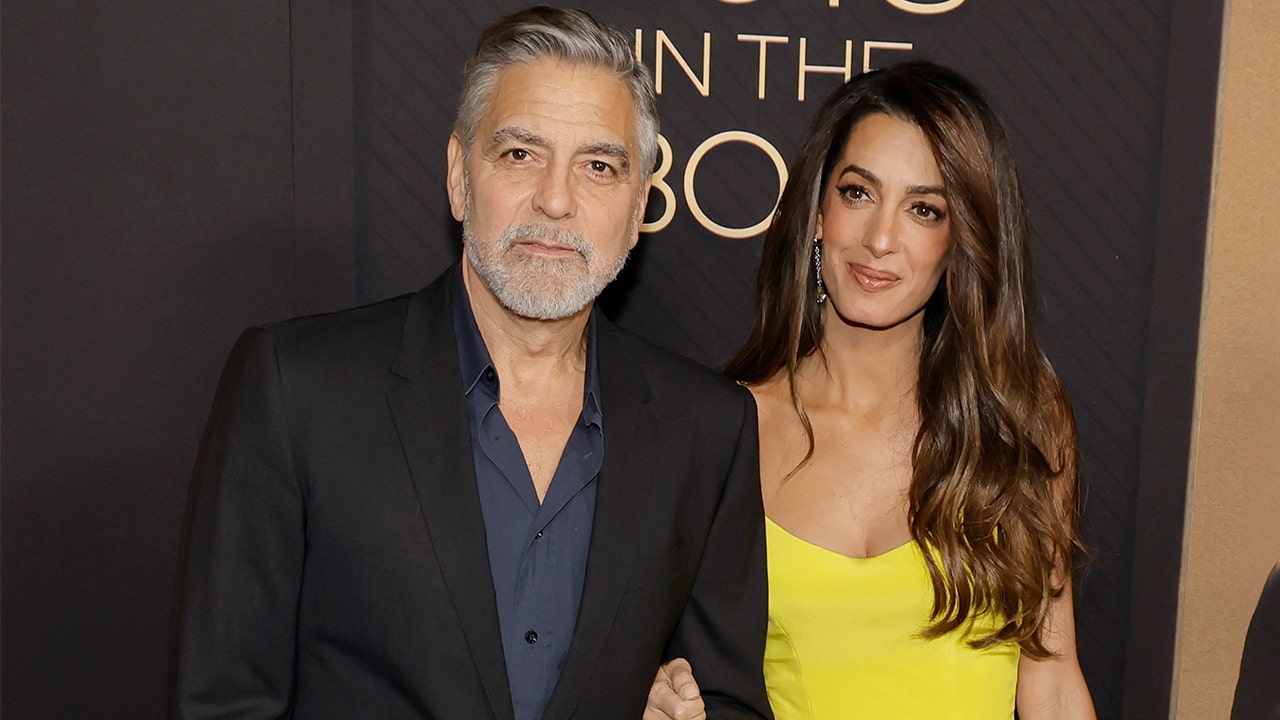In the third convening of an annual renewable energy conference, Gov. Mike Dunleavy touted economic concerns — not environmental ones — in promoting the state’s green energy potential.
Dunleavy, a Republican, on Wednesday called legislation adopted by Alaska lawmakers earlier this month “historic,” referring to a bill to enable the state to develop carbon sequestration regulations, another to create a unified transmission organization along the Railbelt that could facilitate the integration of renewable energy projects, and a third to facilitate loans for new renewable energy projects.
Altogether, the legislation, which will also exempt new renewable energy projects from property taxes, could transform Alaska from a state reliant on fossil fuel production to one that increasingly moves toward renewable energy and carbon neutrality.
But climate change — driven by carbon emissions — was not referenced by the governor or the lawmakers who spoke about the legislation at the conference in Anchorage. Rather, they spoke about carbon sequestration and renewable energy possibilities as means for lowering Alaskans’ energy bills and attracting additional investment in the state — including from carbon emitters like oil and gas companies.
“We need to make sure that our industries, our oil base, can stay competitive,” said Sen. Bert Stedman, a Sitka Republican who accompanied Dunleavy onstage at the conference to speak about legislation passed earlier this month.
[Warning of shortfall next year, Enstar takes step toward pipeline that could receive natural gas imports]
When Alaska-based oil producers “try to sell their oil, the buyers are now looking at the carbon footprint,” Stedman added. “We want to make sure that our partners in Prudhoe Bay and all the other oil fields are competitive in that marketplace, or we’re going to be punished by having a harder time selling it and probably lower prices.”
For three years, Dunleavy has convened the annual conference to address renewable energy. He has used the platform to tout his efforts to promote carbon offsetting — keeping trees standing on state land to raise revenue from companies seeking to reduce their carbon footprint — and carbon sequestration — injecting carbon deep underground — to entice investment in Alaska even as some oil and gas companies increasingly shy away from new development in the Arctic.
The state has yet to begin selling carbon offsetting credits, and carbon sequestration legislation has not been transmitted to the governor for his signature. But Dunleavy said Wednesday that Alaska’s carbon storage capacity “is absolutely significant.”
Twenty-four states have adopted greenhouse gas reduction targets. Alaska is not one of them, and at the conference, Dunleavy reiterated that he had no intention of developing such a target.
In a speech to conference attendees, Dunleavy said Tuesday that he’s “agnostic as to the electron.”
“Within the energy sphere, there’s a lot of people that focus on reducing or eliminating carbon. My focus is on providing the cheapest electricity possible to Alaskans so that we can afford to live here, we can afford to bring industry here. In that process, I do think we’re going to minimize carbon with our carbon capture and our carbon offsets and technology as we go into the future,” Dunleavy said.
:quality(70)/cloudfront-us-east-1.images.arcpublishing.com/adn/YRRN6HQ5LRC3FCJRZXV4UIS7KQ.jpg)
“We can’t afford to pick and choose what energy sources we’re going to use,” said Dunleavy. “We need all of it, and we need it as soon as possible.”
Dunleavy’s views are in line with those of Republicans nationally, according to a recent study from the Pew Research Center that found few Republicans see climate change as a top priority for the country, but many support some proposals to address climate change — including developing carbon capture technologies.
The governor was joined at the conference by a bipartisan group of 15 lawmakers, all of whom had recently supported the energy bills that Dunleavy celebrated. Despite disagreements with lawmakers earlier in the session, Dunleavy struck a celebratory tone when speaking about the Legislature.
“The work that they did this year and the work that they’ll do in the years to come will absolutely transform this state,” he said. “I think what happened this year bodes well for next year, the year after, with regard to our ability to work together to get some important bills passed in our House and our Senate.”
Rep. Will Stapp, a Fairbanks Republican, said he is skeptical of some of the Dunleavy-backed carbon policies, including sequestration and offsetting, but that the legislation laid a framework for moving “in a positive direction.”
“What does that look like? To me, that looks like the ability to move the cheapest electron up and down the Railbelt system, no matter where it comes from, no matter how it’s generated, to the consumer at the cheapest rate possible.”
House Minority Leader Calvin Schrage, an Anchorage independent, said in an interview that climate change is “one of the major issues facing our generation” but talking about renewable energy in terms of economic benefits was to “meet people where they’re at.”
“It’s kind of hard to worry about the climate when you’re not able to afford groceries or to heat your home or anything else related to energy,” said Schrage. Alaskans are “feeling the cost of energy more than they’re feeling the impacts of climate change.”
“We need to do things in a cleaner, more renewable way, but we also have to meet our energy needs today and that’s going to require oil and gas. It doesn’t have to be one or the other,” he said.
• • •

:quality(70)/cloudfront-us-east-1.images.arcpublishing.com/adn/EKP5Z5LH4VCKXDOBO4BFYJ2N44.jpg)






:quality(70)/cloudfront-us-east-1.images.arcpublishing.com/adn/5262LZF2PZCXLNCW3455XWC7YA.jpg)
:quality(70)/cloudfront-us-east-1.images.arcpublishing.com/adn/NFAKMUOENRBNRLNWXS62OXDVHQ.jpg)

)





















